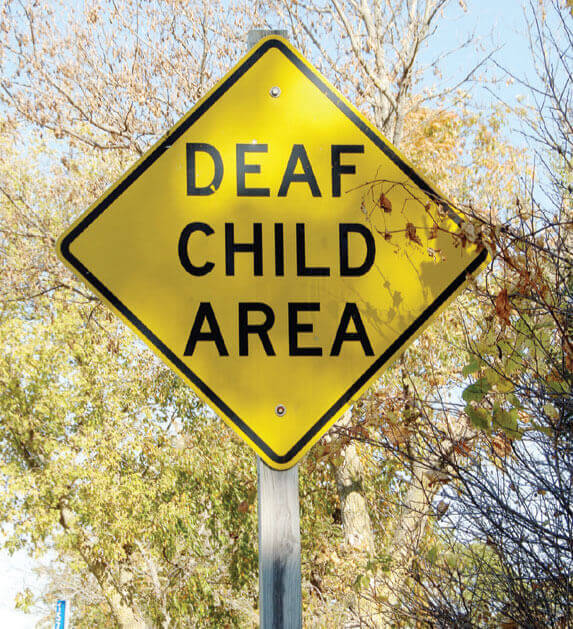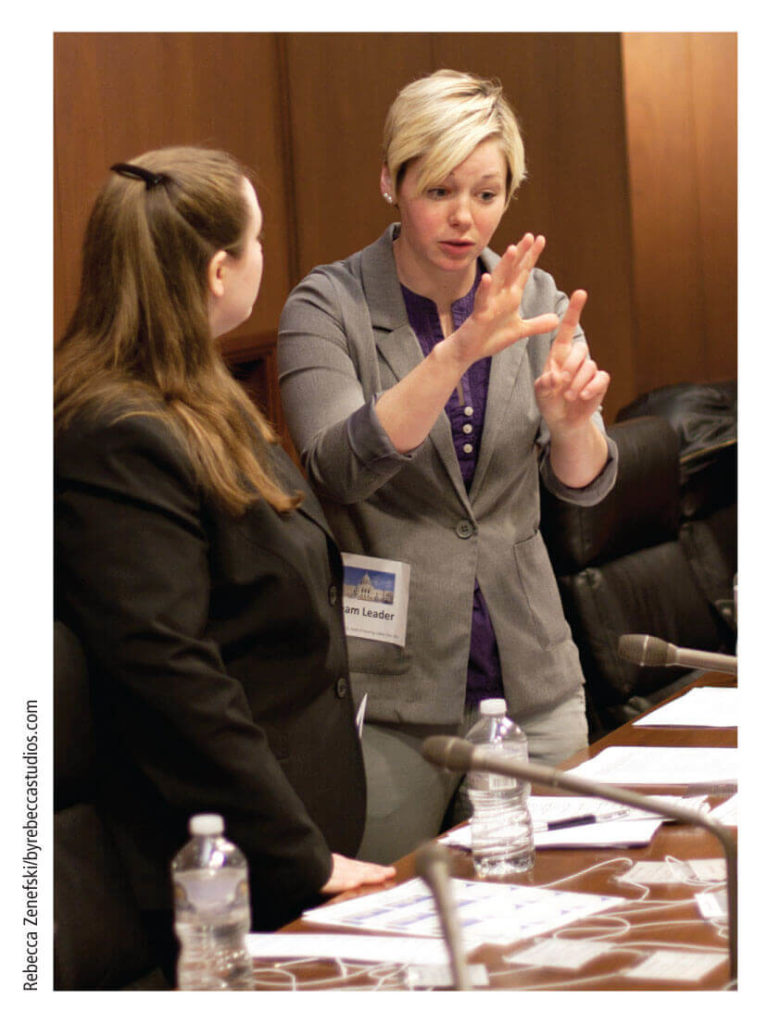His lack of hearing separates the man who is deaf from his society. He experiences the world as silent. Worse, his deafness impedes his speech and silences his voice in the conversation of the human community. These challenges marginalize the man and leave the seeing of his eyes and the commitments of his heart without words.
Yet, this man communicates. He has friends. His friends beg Jesus to lay his hand on him. When Jesus says, “Be opened,” he opens the man’s ears to human conversation and gives him voice.
In fact, as events turn out, the miracle sets this man, who is a Gentile, free to participate fully in Jesus’ mission. When Jesus loosens his tongue and calls him into speech, he cannot be silenced nor can his friends. They will not keep Jesus’ healing power secret. They tell everyone the amazing healing the man has experienced.
This miracle story shows us in cameo that God wants wholeness and freedom for people. It shows Jesus reaches out to include the marginalized. It invites us to identify who is silent in our society.
- When have words failed you?
- When have others silenced you?

Like a person who is deaf or hard of hearing, immigrants face profound hearing and speaking problems. Without the same language, they cannot hear ideas, let alone make sense of new customs, dress, or civic systems. On the other hand, without our knowing immigrants’ languages, we don’t learn from the richness of the cultural backgrounds they bring to their new homeland.
Robin Wall Kimmerer braids together her scientific knowledge and the learning of her native people in her book Braiding Sweetgrass. She is a botany professor. When she decides to learn Ojibwe, a language close to her native Potawatomi, Kimmerer discovers the spirituality the language embodies.
Ojibwe is seventy percent verbs. In her dictionary Kimmerer finds Saturday defined as to be a Saturday. The word bay means to be a bay, alive with shore, bird, flowers, breezes, trees. The word carries the living spirit of all that interacts to make a Saturday or a bay.
In another chapter Kimmerer takes a class to explore a bog and presents the wetlands as a grocery store for their meals. Cattails are a sacred staple. In Potawatomi the word cattail means we wrap the baby in it; in Mohawk it means the cattail wraps humans in her gifts. Earth teaches a spirituality of generosity and gratitude in this language.
Reading this chapter, I flashed to my niece Jessie’s students in her English Language Learner classes. Her first graders come from refugee families — Karen people from Myarmar (Burma) and children from Somolia in Africa, 34 countries in the school. What spirituality do their families leave behind to bring their children to safety? What spirituality will they learn with English, a language that turns the world into nouns?
The deaf man in the gospel is a Gentile. What is the language he has never heard or spoken? Koine Greek? Aramaic. He and his friends go forth speaking the language of Jesus’ good news.
- Who have you listened into speech?
- What challenges have you experienced refugees and immigrants having?
- What spirituality does your language carry?
Jesus pays profound attention to the man who is deaf. Jesus uses his senses. He listens to the man’s friends with his ears and hears the man’s story. Jesus sees the man with his eyes and takes him aside. Jesus puts his fingers in the man’s ears and touches them. From his own mouth Jesus spits and touches the man’s tongue. From his mouth Jesus speaks words of healing, “Be opened.”
This miracle story not only shows Jesus healing the man with divine power but attending to the man with his human hands. The Second Vatican Council reminds us that “by his incarnation the Son of God has united himself in some fashion with every human. He worked with human hands, he thought with a human mind, he acted by human choices, and he loved with a human heart” (Pastoral Constitution on the Church in the Modern World, #22).
Jesus uses his human gifts in healing the man. Our ears like his can listen to human needs. Our eyes like his can see people on the margins. Our minds can imagine ways to draw people fully into the human family. What Jesus does with human hands reveals the love we can give with ours.
- To whom can you bring healing?
- What miracles are you committed to working today?
Secrecy is a major theme in Mark’s gospel. Jesus urges the man with newly-opened ears and loosed tongue to keep secret who he is. But this man is one of four people in Mark’s gospel who tells the secret. None of the four have names. Each comes to Jesus in need of healing.
Two are Gentiles — the man in this Sunday’s gospel and the Gerasene demoniac from whom Jesus cast out a legion of demons (Mark 5.1-20). Two are Jews — the leper in Mark 1.40-45 and the woman with the hemorrhage who overcomes her fear to proclaim the whole truth of her healing in the midst of a crowd of people (Mark 5.33). These four anonymous believers model for Mark’s hearers in A.D. 70 the response he wants from a new generation and from us.
In Mark’s gospel those in the best position to tell the secret of Jesus’ healing, freeing love and his messianic identity — Jesus’ disciples — never tell the secret. In history, of course, they do become preachers of Jesus’ good news. But by the time Mark writes the first eyewitnesses have been put to death, died, or grown old. Mark keeps them silent in his narrative to call a new generation of preachers to voice from among his hearers.
- What irrepressible things do you have to say no matter who tells you to keep them quiet? What call do you hear in these words?
- What is your most irrepressible Christian conviction?
- What convictions do people not know you have?


